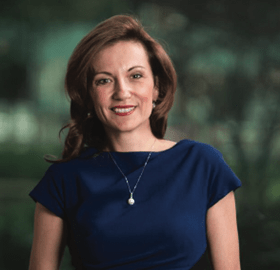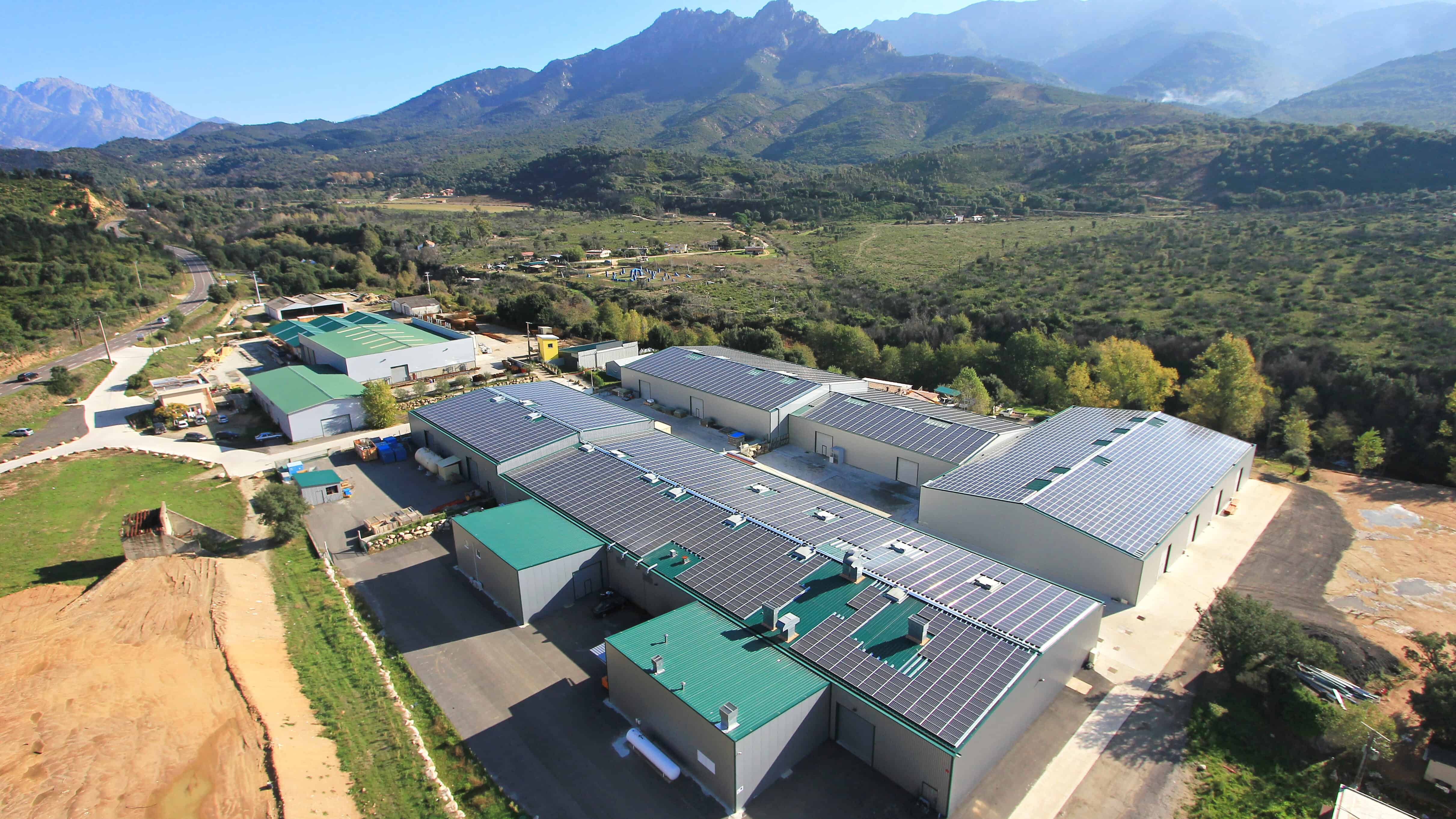Gabriella Kindert is an expert in private debt markets and has managed billions. In this interview, the board member of EstateGuru encourages investors to try out lending platforms and explains how they can scale without ignoring the risks associated with growth.

Board Member, EstateGuru
Dr. Gabriella Kindert is a senior banking and investment professional specialized in Alternative Credit and Private markets. She gained over 20 years of international experience in managing investment portfolios over the cycle for leading institutional investors and global investment teams of alternative and fixed income strategies.
She started her career in banking in 1998 in MeesPierson Corporate and Investment Banking, she held various managerial positions at Fortis Investments Structured Credit, BNP Paribas Asset Management. She is currently focusing on board and advisory positions focused on Private market investment solutions. Further, she is guest lecturer at several business schools.
How did you become interested in private debt markets?
Private debt is a modern term but loaning money to companies is a very old practice, of course. I’m a historian by training, and I like to connect the present to the past. In essence, the questions you need to ask yourself to make an informed credit decision are still the same as they were centuries ago. Is the company on a solid footing and is it going to prosper despite the competition? How are governmental and regulatory decisions going to affect its fate? And so forth. Since you have to factor in many different things, I find this exercise intellectually stimulating. Credit is not just a science, it’s an art.
And where does your interest in online lending platforms come from?
I spent a good part of my career in banking and asset management, and at one point I became interested in the topic of digital transformation. I wanted to know more about it but at that point I needed a way to force myself to really dive into the topic. When you’re 20 years old, everybody expects you to be studying, but at 40, you’re expected to work. So I decided to combine and pursue a Ph.D. next to my job and wrote a thesis about lending platforms and how to scale them. A Ph.D. created the framework to push myself further and further and an end goal to get it done.
Do you also personally invest via lending platforms?
Of course, and I would encourage everyone to try it out. Writing and learning about a topic is a good foundation, but doing is important too. I’ve signed up on many different platforms and have a keen interest in the processes they establish, how they onboard clients, what the user interface looks like et cetera.
“I would encourage everyone to try it out.”
Lending platforms are a fairly recent phenomenon. What is their raison d’être?
There are two main drivers behind their rise. First, since the global financial crisis, banks have tightened their lending standards which means that more and more small businesses are underserved. Second, the digital transformation has allowed these new entrants to service these left-behind clients in a much more efficient way. What I mean by this is that their digital processes like client onboarding, credit scoring and payment processing are faster and less costly than the paper-based banking system. In recent years, an additional factor that fueled the platform’s growth has appeared, namely that fixed income investors do not have attractive alternatives.
Every platform needs to balance growth on both sides, which means the amount of money borrowers need has to be synchronized with the amount of money lenders are willing to provide. How is growth possible under this constraint?
There is a simple answer to this. You need to show on a small scale that you’re worth it. Building trust is extremely important, because what you need is borrowers and lenders that come to your platform repeatedly. Lenders usually will start with small amounts first, and if they’re happy, they will not only come back and increase their stakes, they will talk to their acquaintances about it. Word of mouth is a powerful sales channel. In addition to that, every time someone receives their bank statement and sees that they receive no interest or pay negative rates, this is an additional incentive to search for ways to make your money work. By the way, borrowers that are happy with a platform will talk to their peers as well about the modern way to finance their business.
But there is the latent danger that a platform will just lower their standards in order to increase their volume.
Banking has the same challenge. Everyone wants to grow their business. But the main question is, what is your competitive advantage? Are you able to offer better rates because your risk analysis is better, or do you simply misjudge the risk? The latter will end in disaster, of course, because trust can be destroyed much faster than it can be built. Platforms have a strong vested interest to assure that the borrowers conform to a certain quality and that there are checks and balances in place to avoid a downward spiral. But make no mistake, this doesn’t mean that there won’t be defaults. You don’t get 10% interest by lending to Shell or Nestlé. What is important, in the end, is the average return of a diversified portfolio.
You are a very busy person, board member and advisor of several businesses. Why did you decide to join EstateGuru’s board of directors?
I love the people and the culture of the company. The people I work with are very important for me, and I wouldn’t do it if I had a bad feeling about them. I want to share the same values. With Marek [Pärtel, EstateGuru’s founder and CEO], I felt a strong connection from the start. He and the team want to build something great, not just make money. On top of that, I’m very comfortable with the product, as I’ve invested in loans on EstateGuru’s platform for a while now.
With EUR 120 million of volume in 2020, EstateGuru is already the biggest platform for real-estate backed loans in Europe. But the ambition is much greater still, the goal is to reach EUR 5 billion in 2025. How realistic is that?
Real estate is the largest asset class in the world. The market for the kind of loans we provide is estimated to be EUR 400-500 billion in Europe alone. Can the best platform capture 1% of a market? Of course it can. The demand from retail investors for the kind of returns we provide is enormous. The loan volume of last year is peanuts compared to what is possible.
But to achieve this kind of volume, EstateGuru needs to tap into the large pool of capital that institutional investors can provide. Why have they been only marginally active on the platform in the past?
When I was working for my previous employer, I led a team of 40 people and managed EUR 24 billion in assets. We wouldn’t even look at opportunities where we couldn’t place EUR 100 or 200 million, it simply wasn’t worth the time. The same is true for other private debt funds out there. A platform needs to grow to a certain size to be able to absorb institutional money, but when it reaches that size, the evolution will be rapid. Nevertheless, I’m still a firm believer in the potential of retail investors.
Why?
Because investing is exciting, especially when you’re in control yourself and get 10% interest. I don’t give my money to an asset manager with this kind of alternative. Why should I do that? Especially the younger, digital-savvy generation will find that this is the right product for them. And in general, they hate bankers, so that’s one reason more.
Another vector of growth for EstateGuru will be geographical expansion. But real estate markets are inherently local and differ a lot from each other. Entering new markets increases the risk that something goes wrong.
We recognize that markets have different dynamics and are very well aware of that. This is why we hire local people and analyze the legal framework in a country thoroughly. Despite the differences, many processes stay the same, for example, how you onboard new borrowers. Many people think of Europe as many different markets, but I’d suggest we look at the continent as one big market that represents a vast opportunity.
All this sounds promising, but how do you as a board member make sure that risks are well managed?
By putting an emphasis on quality and on diversity in the team. I want to ensure we have balance in input, processes and dynamics. Balance between masculine and feminine energies. Men always tend to want more, women are constantly worried. This is why I encourage a good balance in the team. Another point is the diversity of opinions. I talk to people on the team what they are worried about, and these interactions allow me to give Marek honest feedback. He always listens and always open. An open culture of criticism is quintessential to manage risks, and CEOs of fast-growing businesses need people around them that counterbalance them and tell them what they think. That’s the foundation of good governance and my believe why EstateGuru has a promising future.
Written by
WITH US, YOU CANCO-INVEST IN DEEP TECH STARTUPS

Verve's investor network
With annual investments of EUR 60-70 mio, we belong to the top 10% most active startup investors in Europe. We therefore get you into competitive financing rounds alongside other world-class venture capital funds.
We empower you to build your individual portfolio.
More News
30.04.2020
“Institutional investors started buying solar plants”
Rainer Isenrich is not only CEO and president of the board of Edisun Power, he's also a pioneer in solar power and convinced of its bright future. As he explains in this interview, investor's appetite for solar plants is growing but finding the surfaces to build them isn't trivial, a problem where startups like Insolight might be able to help.
16.09.2019
“Startups in Switzerland have great potential”
EPFL is not only one of the best universities in the world, but also a place where promising high-tech startups are created. Verve Ventures has backed a lot of them. We visited Prof. Martin Vetterli, the president of EPFL, in Lausanne and talked about science, technology, and entrepreneurship.
17.06.2019
“There is no good similar treatment”
Prof. Jonel Trebicka is an expert for liver diseases. He is supervising clinical trials of Versantis' new drug to treat an acute form of cirrhosis, which is very difficult to treat.
Startups,Innovation andVenture Capital
Sign up to receive our weekly newsletter and learn about investing in technologies that are changing the world.




